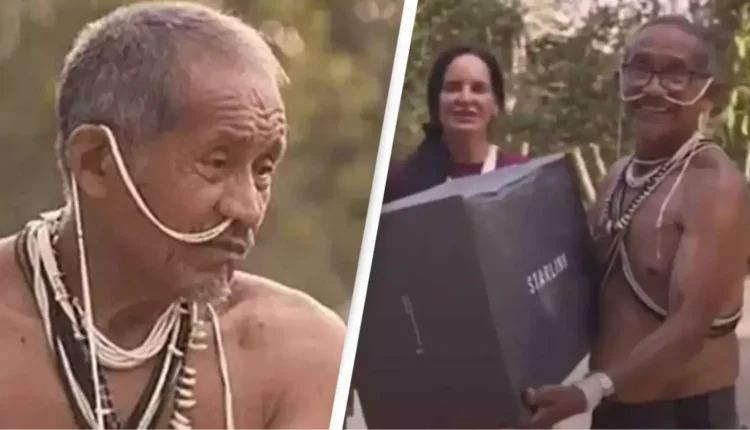A Brazilian Indigenous community has filed a defamation lawsuit against The New York Times, alleging the newspaper’s coverage of the tribe’s internet access misrepresented them as porn addicts and morally compromised.
The Marubo people, an Indigenous tribe of about 2,000 residents in the remote Javari Valley, claim the June 2024 report by Times journalist Jack Nicas falsely portrayed them as culturally degraded following their introduction to Elon Musk’s Starlink satellite internet. The tribe filed the suit this week in a Los Angeles court, seeking at least $180 million in damages.
Also named as defendants are media outlets TMZ and Yahoo, which the lawsuit says sensationalized and amplified misleading portions of the original article—particularly around youth allegedly consuming online pornography. One TMZ segment, titled “Elon Musk’s Starlink Hookup Leaves A Remote Tribe Addicted To Porn,” is cited as especially harmful.
“This portrayal goes beyond cultural commentary,” the amended lawsuit states. “It’s a direct attack on the Marubo’s character, values, and social standing, painting them as incapable of adapting to modern technology.”
While Nicas’ original piece mentioned a tribal leader’s concern over young men sharing explicit content, it also detailed a wide range of digital challenges—such as misinformation, scams, and online gaming. However, the tribe says that focus on pornography led to damaging global perceptions.
In a follow-up article, Nicas clarified: “The Marubo people are not addicted to pornography. There was no suggestion of this in the article.” But the tribe argues this response failed to take responsibility for what they say was the NYT’s role in shaping a defamatory narrative.
The lawsuit also challenges the journalist’s presence in the village, stating he spent less than 48 hours with the community despite claiming to report from a week-long stay.
Community leader Enoque Marubo and Brazilian sociologist Flora Dutra—both plaintiffs—were instrumental in bringing internet access to the tribe for education and emergency communication. They say the coverage wrongly cast them as responsible for cultural decline, especially through the use of their images in viral videos.
In a statement, a Times spokesperson said the article offered a “sensitive and nuanced exploration” of modern technology’s impact on a traditional community and that the publication would “vigorously defend against the lawsuit.”
The tribe maintains the damage has been deep and far-reaching: “The fallout destroyed lives, institutions, and culturally significant projects,” the lawsuit reads.



[…] widely regarded as the gold medal favourite after dominating the heats, was disqualified for allegedly wearing a “second bib” — a move that shocked fans […]